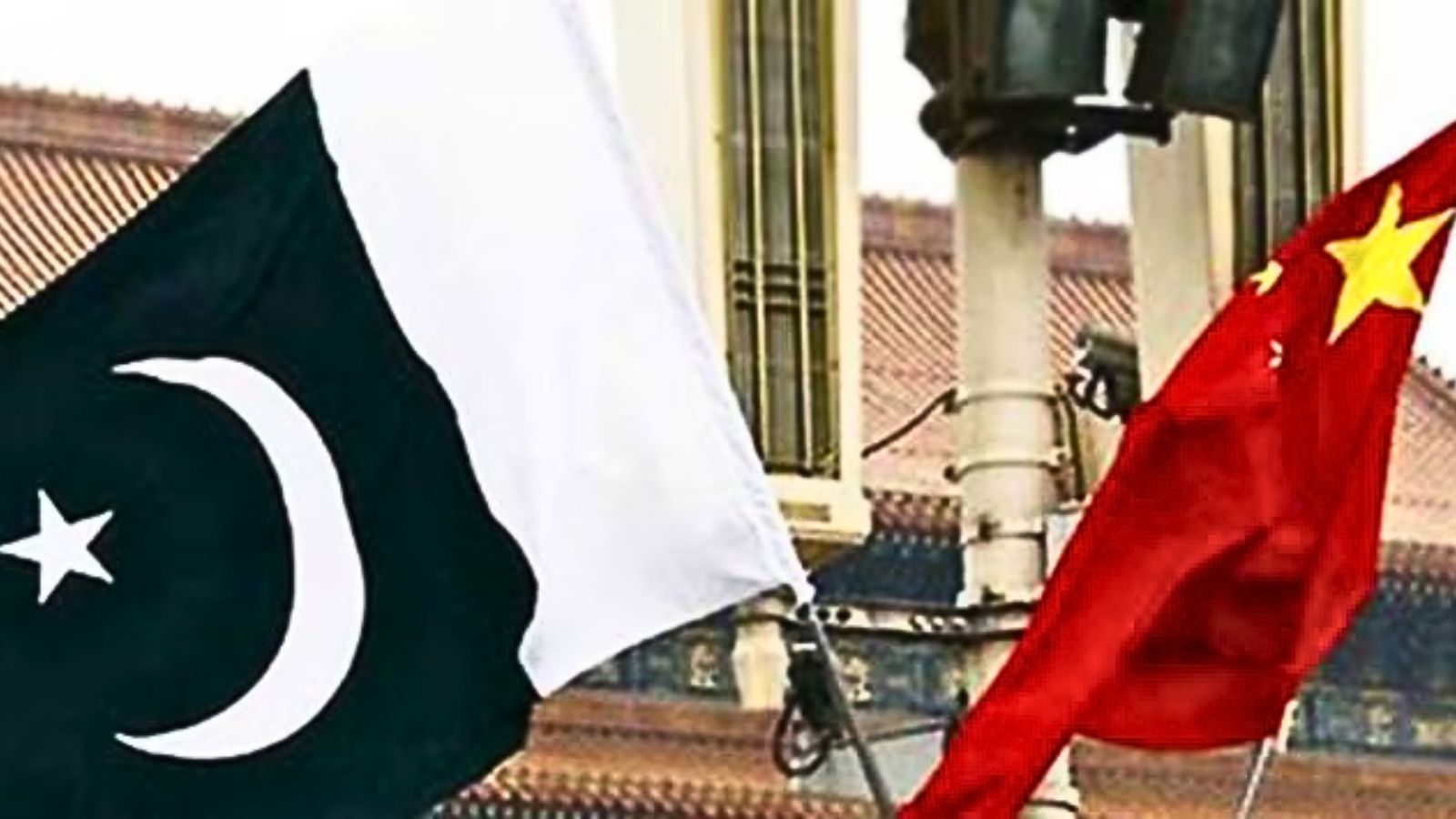Pakistan’s political parties and military voice support for CPEC at meeting with Chinese Communist Party officials | World News

Pakistan’s political parties and military expressed support for the $60 billion at a meeting with a senior official from China’s ruling Communist Party on Friday The China-Pakistan Economic Corridor (CPEC) and its implementationamid recurring terrorist attacks on Chinese personnel working on infrastructure projects.
The cross-party meeting took place during the third session of the Joint Consultative Mechanism (JCM) of the Pakistan-China political parties on CPEC in Islamabad.
The meeting was chaired by Deputy Prime Minister and Foreign Minister Ishaq Dar and Minister of the International Department of the Communist Party of China (IDCPC) and member of the Communist Party Central Committee Liu Jianchao, who is on a three-day visit to Pakistan.
Besides the ruling coalition, representatives of Pakistan Tehreek-e-Insaf, Jamiat Ulema-i-Islam-Fazl and other parties were also present. They expressed their unwavering determination to further strengthen bilateral relations between Pakistan and China by thwarting all nefarious plans.
The CPEC, which connects the port of Gwadar in Pakistan’s Balochistan with China’s Xinjiang province, is the flagship project of China’s ambitious Belt and Road Initiative (BRI). The BRI is seen as China’s attempt to expand its influence abroad with infrastructure projects funded by Chinese investments around the world.
China has also invested billions in various energy projects and road networks in Pakistan under the CPEC plan, but the implementation of various projects has slowed down in recent months.
The recurring attacks by militant groups in Pakistan on Chinese personnel working on the CPEC projects have become a major problem for China.
In March, five Chinese and one Pakistani were killed in a terrorist attack on their vehicle belonging to the Dasu hydropower project being implemented by a Chinese company in Khyber Pakhtunkhwa province.
Dar said in his remarks that CPEC has played the role of a catalyst in Pakistan’s socio-economic development. “CPEC has not only helped in alleviating chronic problems of power outages, but development projects have also helped in creating mass employment in Pakistan,” he said.
The Foreign Minister said the two countries agreed on the implementation of the second phase of CPEC and also signed the modalities for third-party participation in the project, which is an essential pillar of the economic and strategic partnership between Pakistan and China.
Dar said the two countries would give priority to the agriculture, information technology, industrial and mining and minerals sectors in the second phase of CPEC.
Liu said the agreements signed during Prime Minister Shehbaz Sharif’s recent visit provided an opportunity for the two countries to deepen their relations and that the leaders of both countries had sent a “clear message to the world that the friendship between China and Pakistan is unbreakable.”
He said that party-to-party relations are an integral part of bilateral relations, adding that it is “high time” that Pakistan’s political parties contribute their wisdom to implement the plan by understanding each other’s development philosophy.
He announced that the IDCPC will invite 300 Pakistani parliamentarians to China within three years and will also provide scholarships and vocational training opportunities to Pakistani youth.
Planning Minister Ahsan Iqbal said new corridors have been included in the CPEC, in line with the 5Es framework focusing on exports, equity, empowerment, environment and energy.
Established in 2019, the Political Parties’ JCM on CPEC is a regular consultation mechanism between the Communist Party of China and the political parties of Pakistan. Previous meetings were held in Beijing on March 19, 2019, and virtually on August 20, 2020.
Earlier, during a meeting with Dar, Liu said that China attaches special importance to Pakistan in its foreign policy and wants to strengthen the strategic partnership between the two countries. He expressed satisfaction with the steady pace of CPEC. He reiterated China’s strong desire to further strengthen ties between the Chinese Communist Party and Pakistan’s political parties.
Dar stressed that CPEC, as the flagship project of China’s Belt and Road Initiative, has brought about a profound transformation in energy security. Both sides agreed to maintain the momentum of the high-level talks and further enhance communication on key regional and global issues.
Liu also met with Army Chief Asim Munir at the headquarters in Rawalpindi. According to the army, they discussed matters of mutual interest, including regional peace and stability, and reviewed the progress of CPEC.
General Munir reiterated Pakistan’s unwavering commitment to the strategic partnership with China and pledged full support for the successful implementation of CPEC. Liu stressed that his visit to Pakistan was a follow-up to the successful meetings between the leaders of the two countries in China earlier this month.
He stressed the importance of the long-standing brotherly relations between the two countries and expressed satisfaction with the progress made in CPEC, reaffirming China’s commitment to its timely completion.
Liu also praised Pakistan’s efforts to maintain peace and stability in the region and acknowledged the Pakistani army’s support in ensuring the security of Chinese nationals and projects in the country.



